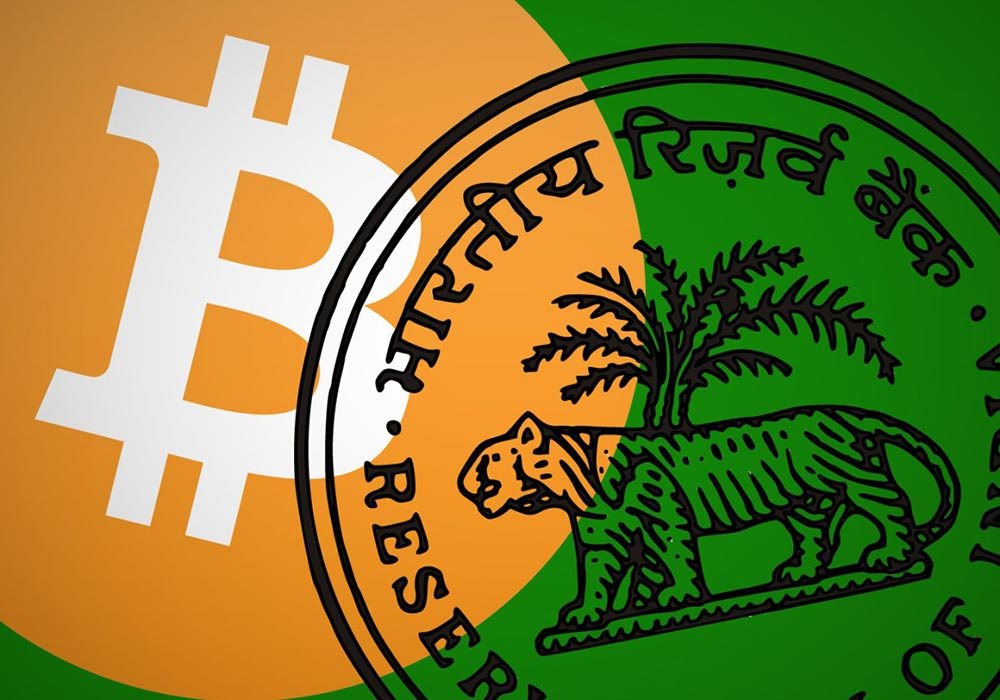
The Blockchain story – a Web platform and Mobile Application has filed a Petition at the Supreme Court of India on 12 May 2018 against a directive issued by Reserve Bank of India (India’s Central Bank) claiming violation of its fundamental rights.
The Writ Petition has been filed under Article 32 of the Constitution of India, 1950 which provides a remedy to move apex court for redressal of grievances for violation of fundamental rights by the State.
Reserve Bank of India is a Regulatory Authority for financial sector in India. It regulates and supervises the financial system and prescribes parameters for banking operations within which the country’s banking and financial system functions.
The Reserve Bank of India had issued a Circular dated April 6, 2018 directing entities regulated by it to stop providing services to individual or entities dealing in virtual currencies. Further, it directed the regulated entities which are already providing services to such businesses to exit the relationship within three months from the date of the circular. The relevant excerpt of the concerned Circular reads as under:
“In view of the associated risks, it has been decided that, with immediate effect, entities regulated by the Reserve Bank shall not deal in VCs or provide services for facilitating any person or entity in dealing with or settling VCs. Such services include maintaining accounts, registering, trading, settling, clearing, giving loans against virtual tokens, accepting them as collateral, opening accounts of exchanges dealing with them and transfer / receipt of money in accounts relating to purchase/ sale of VCs.”
The Blockchain Story founder and the petitioner in the writ petition Satyam Tiwari asserts that the circular violates his fundamental rights under Article 14 and 19 (1)(g) which guarantees Right to Equality and protects his right and Freedom to Trade & Business.
The Circular is bereft of any reasoning or grounds as to why it is restricting the Banks and other entities in dealing with businesses engaged in cryptocurrency. There is not even a whisper about the reasons as to why Banks and other entities providing services to such businesses are against public interest. The circular does not provide sufficient proof in the form of verifiable empirical data and documents or materials to justify the prohibition of banking services. It is well settled law that not providing reasons is actually a violation of Principles of Natural Justice (PNJ) which is an anathema in a country governed by “Rule of Law”.
The Petitioner Satyam Tiwari claims that without making virtual currencies illegal in itself, the Reserve Bank of India is trying to prevent its trade indirectly. He says that through such a circuitous way, his valuable fundamental rights are getting defeated and ultimately his livelihood and subsistence is getting seriously prejudiced.
Reserve Bank of India has also dispensed with its long standing practice of consultation with stakeholders and public. The Supreme Court of India Court in various judgments, for the sake of transparency, better decision making, preventing challenge, and for protection of the salutary principles embodied in the Democratic and constitutional setup of India, has exhorted and enjoined upon various Regulators to issue a “consultation paper”, invite comments on the same and hold “an open review meeting” with the stakeholders before taking a policy decision.
This move by Reserve bank of India would halt the technological advancements and stifle innovation. It will also force the businesses to move to other crypto friendly jurisdictions and lead to talent migration.
The Government of India should take a cue from Japan which followed the recommendations of Financial Action Task Force. The Financial Action Task Force (FATF), a Paris-based international body that creates policies to combat money laundering, issued its “Guidance of Risk-Based Approach to Cryptocurrencies” in 2015 wherein it recommended that countries license virtual currency exchanges and subject them to the same rules and oversight as any other financial institution or money transmitting business.
It is imperative that the Government of India should proactively deal with the challenges posed by Blockchain technology and its use case as cryptocurrencies instead of taking a prohibitory approach. The Government of India should understand that all the technologically advanced countries have adopted either a positive approach or at least a wait and watch approach towards cryptocurrency regulation. It is to be understood that cryptocurrencies are here to stay and a hostile stance will not fulfil any objective.
Author Alok Nayak is a lawyer based in New Delhi, India. He advises business engaged in Blockchain and Cryptocurrency industry. You can follow the author on twitter @cryptoslawyer and direct your queries at [email protected] or telegram @Lawyer_crypto
Also Read:
KryptoMoney.com publishes latest news and updates about Bitcoin, Blockchain Technology, Cryptocurrencies and upcoming ICO’s.

Author Alok Nayak is a lawyer based in New Delhi, India. He advises business engaged in Blockchain and Cryptocurrency industry. You can follow the author on twitter @cryptoslawyer and direct your queries at [email protected] or telegram @Lawyer_crypto
Keep in mind that we may receive commissions when you click our links and make purchases. However, this does not impact our reviews and comparisons. We try our best to keep things fair and balanced, in order to help you make the best choice for you.